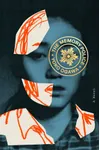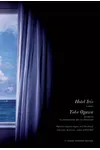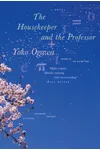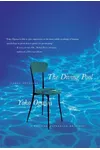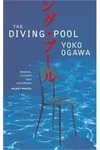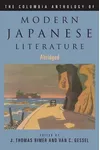Picture a Japanese storyteller weaving tales that linger like a haunting melody—meet Yoko Ogawa! With a knack for unraveling the human psyche, Ogawa has crafted over forty works of fiction and nonfiction, earning her a global following. Her novel The Memory Police, a dystopian masterpiece, catapulted her into the international spotlight in 2019, blending eerie surrealism with profound emotional depth.
Born in Okayama, Japan, Ogawa’s stories delve into memory, loss, and the quiet strength of women navigating complex worlds. Her gentle yet piercing prose has won every major Japanese literary award, making her a beloved voice in contemporary literature. Ready to dive into her captivating universe? Let’s explore!
The Making of Yoko Ogawa
Yoko Ogawa was born on March 30, 1962, in Okayama Prefecture, growing up in a family rooted in the Konkōkyō religion, which instilled deep spiritual and educational values. Her love for storytelling sparked early, fueled by children’s literature and, notably, The Diary of Anne Frank, which inspired her to keep a diary and dream of becoming an author. After graduating from Waseda University with a literature degree, she worked as a medical university secretary before marrying and turning writing into her full-time passion while her husband was at work.
Influenced by Japanese literary giants like Kenzaburō Ōe and Haruki Murakami, as well as American author Paul Auster, Ogawa honed a style that feels like a whispered secret—intimate yet universal. Her early works, like the Akutagawa Prize-winning Pregnancy Diary, showcased her ability to transform everyday moments into profound narratives, setting the stage for her prolific career.
Yoko Ogawa’s Unforgettable Stories
Ogawa’s bibliography is a treasure trove of psychological depth and subtle beauty. The Memory Police (1994, translated 2019) is her most celebrated work, a chilling dystopian tale where objects—and memories of them—vanish from an island under authoritarian control. Its haunting allegory of loss and resistance, inspired by Anne Frank’s diary, earned nominations for the National Book Award and International Booker Prize.
Another gem, The Housekeeper and the Professor (2003), explores memory through a mathematics professor who can only retain new memories for eighty minutes. This tender story of connection and intellect became a global hit and inspired a film, The Professor’s Beloved Equation. The Diving Pool (1990), a collection of novellas, reveals Ogawa’s darker side, with stories like Pregnancy Diary probing obsession and familial tension. Hotel Iris (1996) dives into desire and power dynamics, showcasing her versatility across genres.
Ogawa’s style is deceptively simple, blending magical realism, dystopian elements, and psychological insight. Her female protagonists often navigate confinement or societal pressures, reflecting themes of memory, identity, and resilience. Whether she’s exploring a disappearing world or a fleeting human connection, her prose feels like a delicate brushstroke on a vast canvas.
Why Yoko Ogawa Matters
Yoko Ogawa’s impact transcends borders, offering a lens into the fragility of memory and the strength of the human spirit. Her work resonates with readers facing modern anxieties—surveillance, environmental loss, and cultural erasure—while remaining timeless in its exploration of love and loss. By centering women’s voices, she challenges traditional narratives, earning praise from critics and authors like Kenzaburō Ōe for her psychological acuity.
Her influence extends to adaptations, from films to theater, and her growing English translations are introducing new audiences to her genius. Ogawa’s ability to make the ordinary profound ensures her stories linger, inviting readers to question what shapes our identities and memories.
- Born: March 30, 1962, Okayama, Japan
- Key Works: The Memory Police, The Housekeeper and the Professor, The Diving Pool, Hotel Iris
- Awards: Akutagawa Prize, Yomiuri Prize, Shirley Jackson Award, American Book Award
- Influence: Inspired by Anne Frank, Haruki Murakami, Paul Auster
Snag The Memory Police or The Housekeeper and the Professor and dive into Yoko Ogawa’s mesmerizing world of memory and emotion!
